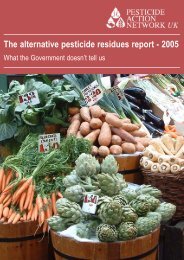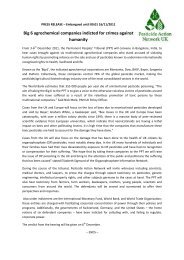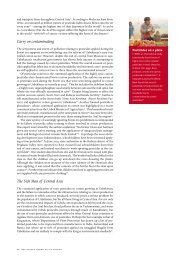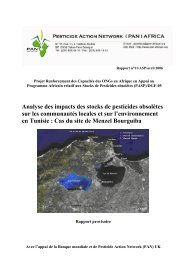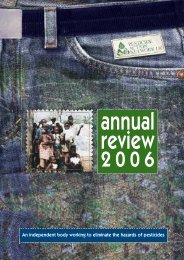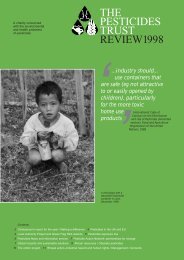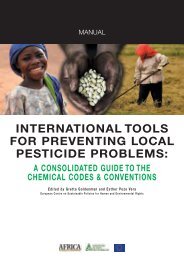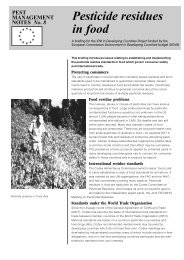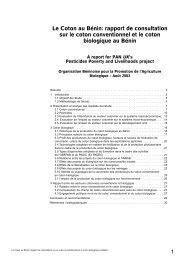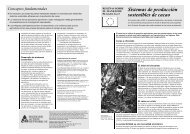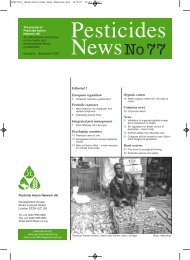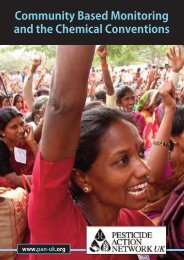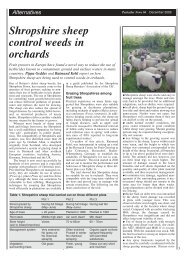Tanzania Multi Stakeholder Map - WebNG
Tanzania Multi Stakeholder Map - WebNG
Tanzania Multi Stakeholder Map - WebNG
You also want an ePaper? Increase the reach of your titles
YUMPU automatically turns print PDFs into web optimized ePapers that Google loves.
After the presentation it was asked that what are the tools for assessing the<br />
ecotoxicological risks and the reaction was that risk assessment itself is a tool.<br />
There will be training on how to apply the tools to come out with the result.<br />
3.4.6 Pesticides and Poverty: Case Studies<br />
Mr. Yahya Msangi- TPAWU and Mr. S. Mng’anya-AGENDA<br />
The presentation gave explanation on case studies that will be undertaken as<br />
part of the project activities. The objectives of the case studies are to<br />
demonstrate the need for action under international chemical conventions<br />
(Stockholm, Rotterdam, Basel, Bamako, ILO) and national programmes (NIP and<br />
ASP); to identify pesticide problems including poisoning and environmental<br />
impact; to determine type and extent of interventions required; how to influence<br />
policy changes; plan for awareness raising; and advocacy and lobbying.<br />
The criteria for selecting case studies are that they should be relevant to<br />
chemical conventions and national programmes i.e. ASP, NIP; problem solving<br />
specifically by identifying the pesticides of concern, health and environmental<br />
impacts; make use of PIC reporting form in case of poisoning; allow for<br />
completion within short period of time with available (limited) resources; and must<br />
focus on the overall concept of this project i.e. pesticides and poverty, health and<br />
safety etc. The case studies should address issues of poisoning incidences;<br />
Integrated Pest/ Vector Management (IPM/IVM); Organic farming & Indigenous<br />
knowledge; Obsolete stocks of pesticides; Labelling and empty containers<br />
management; Spray equipment and PPE; Vulnerable groups – women, children;<br />
and Industry advertisement.<br />
Implementation of the case studies will be done by contracting local NGOs,<br />
which have interest on pesticides, and the terms of reference will be developed<br />
by the secretariat. Furthermore, the case studies will be conducted in sectoral<br />
form such as communities, farmers, workers, and households.<br />
During panel discussion after the presentations of papers of this theme, the<br />
following were asked from presentations, it seems this project will be carried out<br />
with NGOs and CBOs, what are the roles of other stakeholders and the reaction<br />
was that there are specific activities to be carried by NGOs and CBOs but there<br />
are some other activities for other stakeholders. It was then commended that this<br />
project is aimed to strengthen NGOs before launch of the ASP therefore it is<br />
funded from PAN UK separately from the ASP project itself. Government usually<br />
involves NGOs and CSOs in all donor-funded projects.<br />
22




